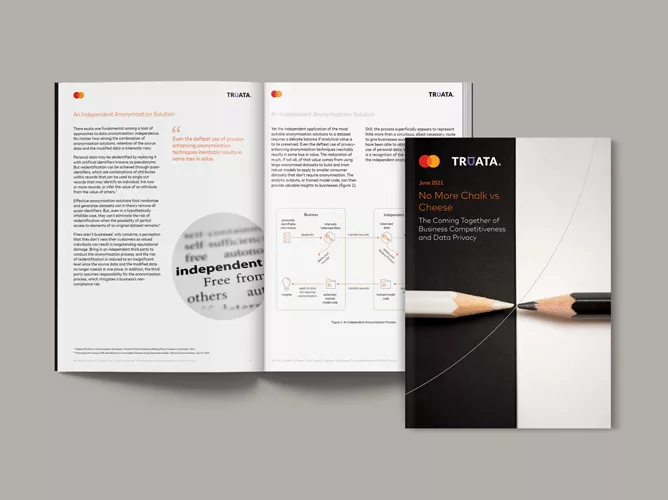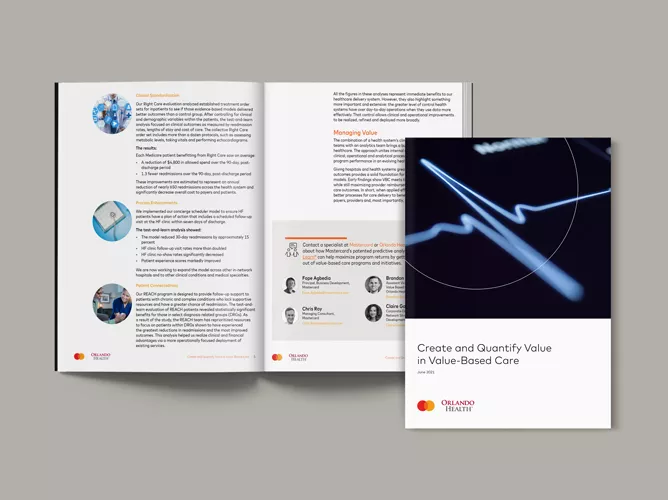By JoAnn Stonier, Chief Data Officer, Mastercard
We’ve been on quite a journey these past months. Despite headwinds from Covid-19, including shutdowns, to vaccines, and everything in between, organizations are now transitioning to the next chapter. Through it all, the role of data has grown and intensified.
Organizations worldwide have spent nearly three years changing their data trajectory and strategy. With those changes, data leaders are tasked with helping their organizations navigate new risks as the world changes. With more data, more computing power, more devices and more information being collected, data leaders and their teams are being asked to solve increasingly complex problems that require innovative solutions.
Industry-wide, data today is different from a mere three years ago. Larger data profiles and more connected data ecosystems mean we operate in a world with greater potential for data harm. Enterprises need to manage risks concerning fake data, misinformation, mal-information and data manipulation. And this is on top of operational data risks related to data quality, algorithmic bias and concerns about negative impacts to diversity and inclusion.
Currently, there are not enough pathways to digital justice to solve many of these challenges, so businesses, platforms and societal organizations are left struggling to develop solutions to minimize data harm independently. Data teams within organizations address data challenges by focusing on each step in the data process, including improving data quality, understanding and validating sources, ensuring data consistency, and working with known data partners to create responsible ecosystems for deep analytic data sharing.

Here are five tips for organizations as data professionals enter into a new year and hopefully emerge out of the pandemic:
- Align the data strategy to the business strategy. During Covid, Mastercard advised many businesses and governments trying to figure out for the first time what data they needed to answer a range of questions emerging out of a swiftly evolving world. Capturing the right data is the first step to problem solving and improving products and solutions. The right data also helps with efficiency, such as managing supply chains to meet customer expectations.
- Build a foundation of data management and governance for the future. At each level of an organization, it is critical to ensure that data management and governance, data quality, data curation, data cataloging are all connected to the business. These capabilities will drive innovation into the future.
- Strive for the highest quality data. Data quality has always been important, but today’s data feed artificial intelligence and machine learning. It is essential to understand the data provided to algorithms and whether it’s representative of all people and all populations for the problems that need to be solved and the questions that need answers. It all comes back to whether the data is fit for purpose and sufficient quality to provide accurate answers to the posed questions.
- Ensure data practices are responsible and ethical. This is key to business sustainability. Organizations should be accountable, transparent, and have integrity in how data is used. At Mastercard, we believe that individuals should understand how their data is used, have the right to control their data, and of course, should expect privacy and security for their information. This means designing products and solutions with individuals in mind and making sure we incorporate that thinking into our data practices every step of the way – from product development to sales and delivery. Using data responsibly is just good business.
- Make data literacy a key baseline skill. Across most organizations, data and data analytics skills are necessary for almost every job. For example, human resources teams use data to ensure they’re recruiting the very best people. Legal teams use natural language processing for document review. It’s no longer enough to explain the basics of data. Everyone needs to participate in data management and governance and understand basic data analytics, as well as the risks of misuse and harm.
At Mastercard, our profile as a global leader in technology has expanded along with our data footprint. While we are proud of our long-standing reputation in card payments, we are also proud of our commitment to privacy and our leadership in security. Mastercard is evolving in many ways to meet the changing times and customer demands related to data. As the financial services sector changes, and as we begin to think of ourselves as a network of payments networks, Mastercard is providing more data-driven services that drive innovation while minimizing risk.
As we move further into this decade, data will play a vital role in ensuring that the next generation of innovation will be even better than what’s gone before. A journey that will keep data professionals on the hunt for even better methods to balance risks while empowering new solutions.
JoAnn Stonier is Mastercard’s Chief Data Officer. Learn more about Mastercard’s global data imperative.











